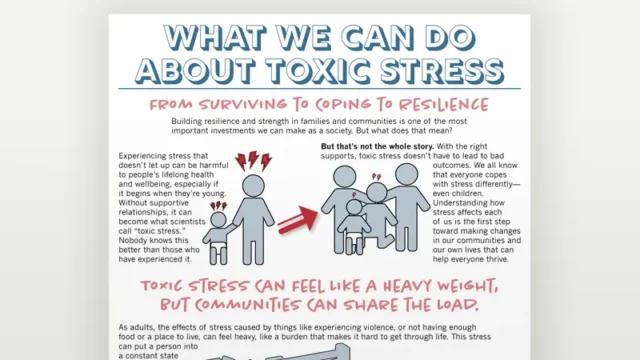What We Can Do About Toxic Stress

Reading about the science of toxic stress for those who have experienced it can be overwhelming, or even make you feel damaged and unfixable, as though the effects might be too hard to overcome. But it’s important to know that—though the effects of toxic stress can be real and powerful—experiencing it is never the end of the story. There are things that can help, on an individual level, a community level, and a policy-making level, to lessen the effects of toxic stress.